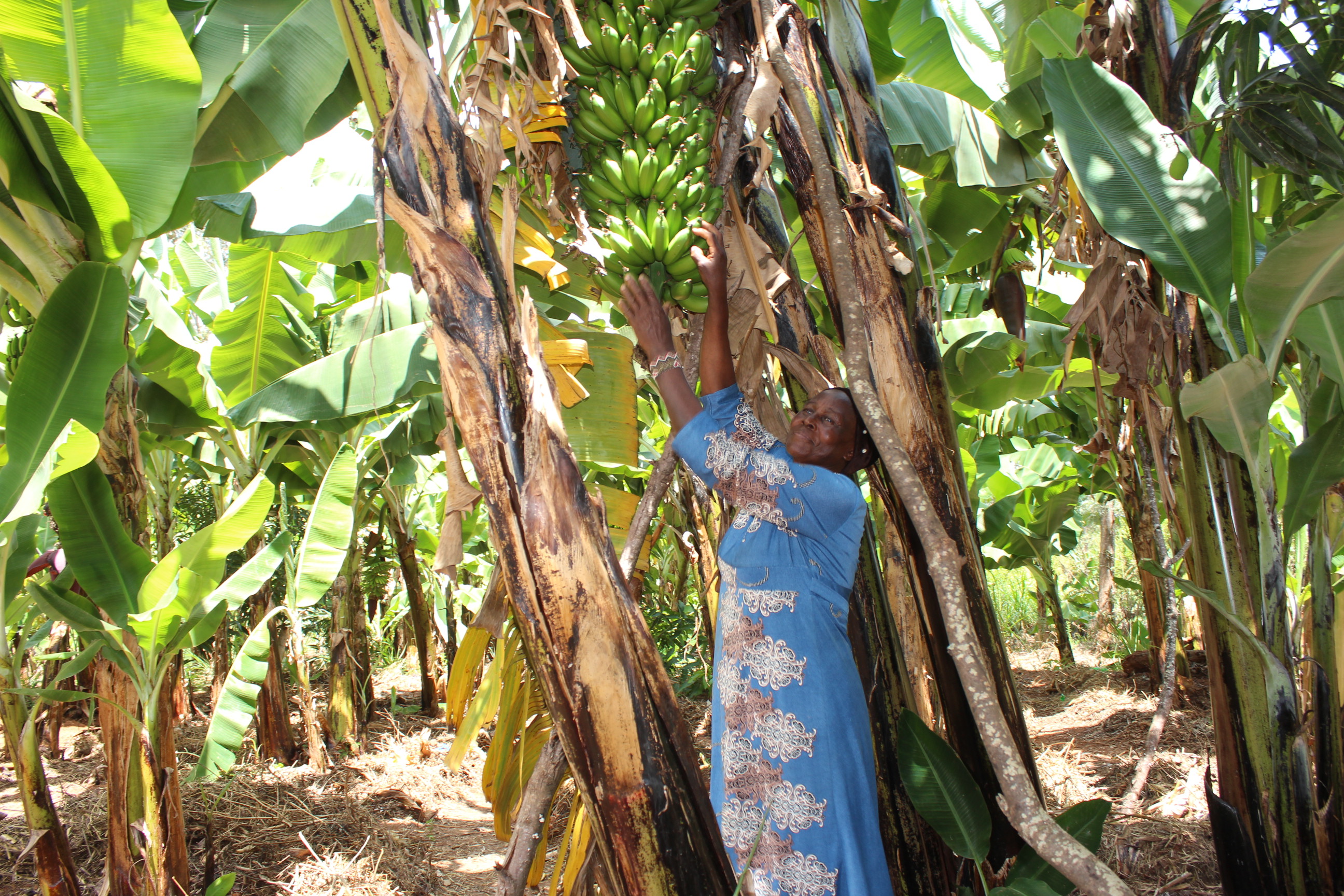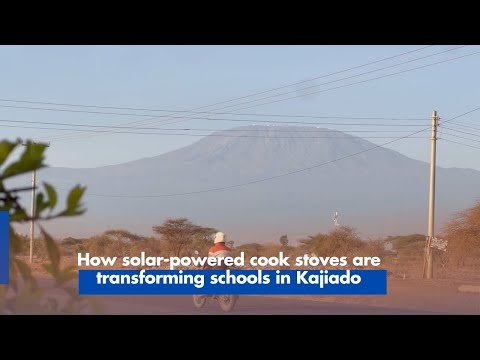
 Juliana Wanjiku on her farm in Mugumo village, Ithanga subcounty, Murang'a county/ ALICE WAITHERA
Juliana Wanjiku on her farm in Mugumo village, Ithanga subcounty, Murang'a county/ ALICE WAITHERAFarmers practising agroecology in Murang’a county are set to earn more as stakeholders advance efforts to connect them to consumers.
The stakeholders include organisations and farmers whose farms have been turned into demo sites. They met in Murang’a county on Monday and said the move
will help farmers get more returns, while more Kenyans access healthy agricultural
products.
The county has been at the forefront in championing agroecology that includes organic farming, reduced tillage to enhance soil
health, crop diversification and conservation agriculture to
create sustainable and resilient food systems.
The county administration has partnered with a group of organisations
that led to its adoption of the Agroecological Act and Policy in 2022, making it the
first in the country.
Agriculture executive Kiringai Kamau
said the organisations have been upscaling awareness creation and training farmers.
“Our plans now are to connect agroecological farmers in the
grassroots to consumers at the national and international levels with the help
of our partners,” he said.
Under the Food-farmacy programme that aims to ensure residents consume healthy foods, the county government has
helped farmers supply organically grown foods to specific outlets.
Among the activities being undertaken is the establishment
of a digital platform where farmers will market their produce and consumers can
make their orders using their mobile phones.
Murang’a county is one of the areas heavily burdened by
chronic illnesses, including hypertension, diabetes, arthritis and even cancer.
Kiringai said local schools are also set to be enlisted in
what is expected to provide a ready market for farmers while ensuring learners
consume healthy foods that reduce their morbidity risks.
In all major markets, organic farmers have been provided
with specific stalls from where they sell vegetables,
herbs and spices, maize, arrowroots, cassava and fruits.
Kiringai said activities geared towards ensuring
farmers only use bio-inputs that don’t further degrade their farms are
ongoing.
“This is why moving forward, we are asking our farmers to
work together with our partners so they can be trained on how to make their own
manure and access bio-inputs,” he added.
Kiringai said their efforts have received the
support of the World Bank-funded National Agriculture Value Chain Development
project, which has helped reach out to more farmers.
Elijah Kamau, a programmes officer atthe Institute for Culture and Ecology, said the multi-stakeholder platform
that is made up of organisations that support agroecology has established a
report that underlines their specific roles to avoid duplication.
“Part of the reason we’ve met is to
discuss our sustainability plan and how to strengthen agroecology in Murang’a
county,” he said.
He said the agroecology
implementation framework put in place in 2023, underlined the activities to be
undertaken to reach out to farmers and ensure as many as possible embrace it.
“Most of our partners have been undertaking
training among farmers on how to practice agroecology and residents on the
benefits of consuming agroecological products”.
The trainings, he said, have enlightened
thousands of farmers on how to rejuvenate their soils and boost their harvests.
Kamau said research
conducted in the county revealed that food production has been devastated by
the high acidity of soils.
He said farmers are trained on how to
balance and heal their soils, enabling beneficial microorganisms to live,
which in turn sees them to harvest much more with food crops reported to have an
improved taste.
“We insist on the use of organic manure
and inputs so that we can keep our soils alive,” Kamau said.
The stakeholders have also helped introduce short
courses at the Murang’a University of Technology to enlighten residents on the practice.
Prof Benson Mwangi, the director of
Mariira Campus for Agriculture and Environmental Sciences invited more farmers
to undertake the short courses that only take two weeks.
“We’ve been training farmers on
agroecology, especially on soil rejuvenation and are inviting more to come in.
The kind of farming that most have been practising has destroyed our soils over
the years,” he said.
The university also offers a master’s
degree and undertakes research crucial for the agroecology movement.
John Kamande, an agroecology champion
whose farm in Sabasaba, Maragua, is visited by hundreds of global enthusiasts,
said most farms that used to produce tonnes of food crops barely feed families now.
“Farms that produced 10 sacks of produce currently don’t produce even two. Agroecology ensures families are food secure and financially stable as more food is harvested,” he said.















